Do policymakers and judges listen to legal academics when formulating law and policy? That depends.
When Baroness Hale of Richmond became president of the Supreme Court in September last year, she became not just the first woman to serve in the role, but also the only academic at the country’s highest court.
Lady Hale qualified as a barrister, but gave up legal practice to focus on an academic career. As a law professor at Manchester University for almost two decades, she was founding editor of a law journal and wrote a ‘pioneering’ case book on family, law and society. It was as a leading academic that Lady Hale was appointed chair of the Law Commission, where she shaped landmark legislation including the Children Act 1989 and the Family Law Act 1996. Her judicial ascent started in 1994 when she became the first academic to be appointed a judge in the High Court – moving to the Court of Appeal five years later and the Lords in 2004, and transferring to the Supreme Court in 2009.
Hale is one of the most notable examples of how legal academics can influence and shape the development of the law. Her ascent is even more striking since ‘the relationship between judge and scholar in England was, historically, anything but close. It was very much a case of signals shown and distant voices in the dark’, her predecessor, Lord Neuberger, observed in a 2012 lecture. This is in contrast with most other jurisdictions, owing to their civil law tradition.
But, Neuberger observed, there is now ‘a constructive partnership’ between the judiciary and academia: ‘The growth in number, size, and quality of university law departments and the consequent influence they have had over the intellectual development of lawyers and judges since the 1950s has been immense.’
While, as Lord Neuberger argues, law professors may be ‘influencing legal minds in their formative years’, their direct impact on changes in law and policy is a matter for debate. Writing in Legal Education Review in 1992, Martin Partington, emeritus professor of law at Bristol University, said ‘no “audit” of the extent and nature of any influence from the work of legal academics has been undertaken’. And that remains largely the case.
Leaving the ivory tower
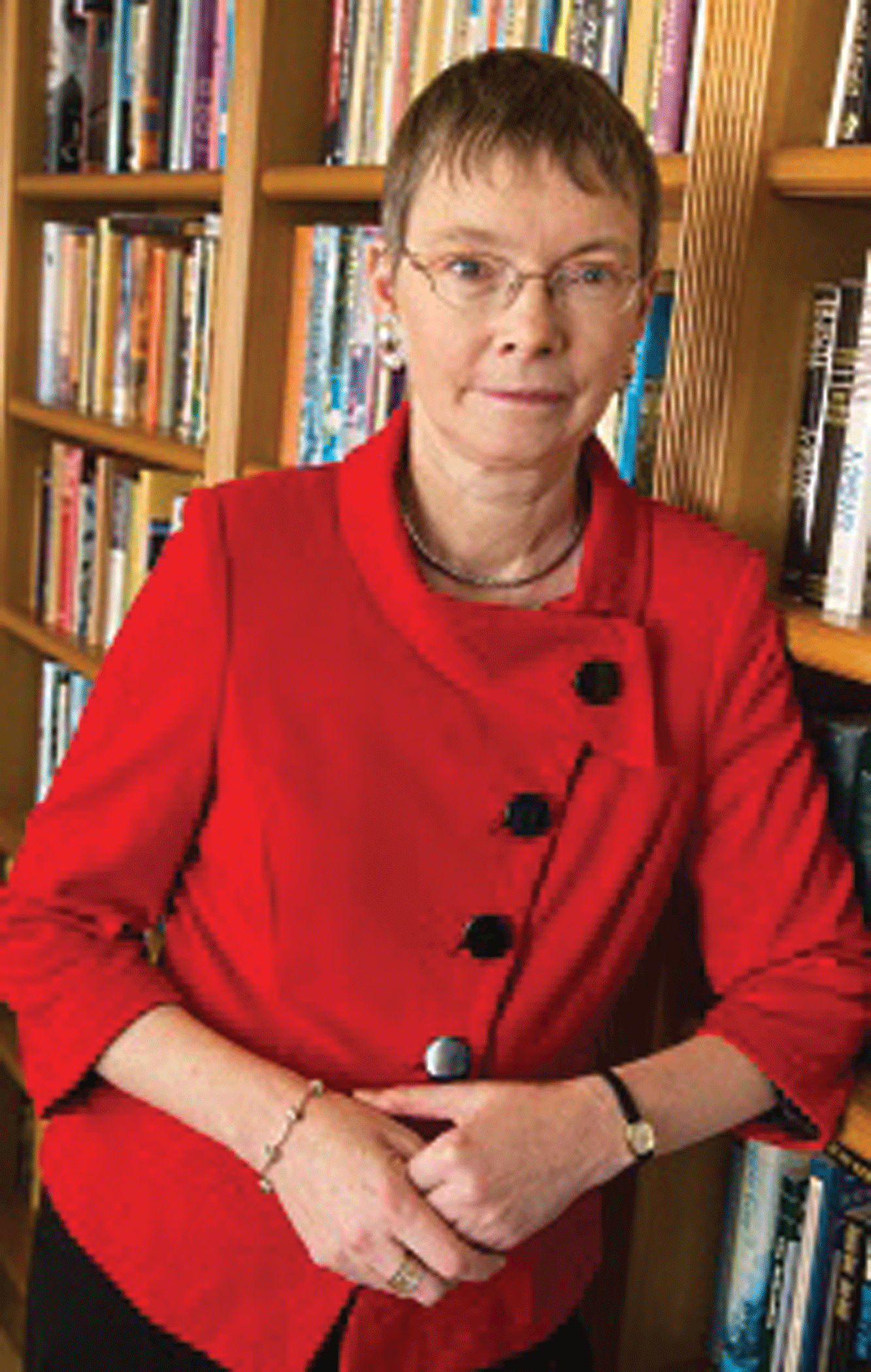
Traditionally, legal academics have contributed to developing the law in a number of ways, Fiona Cownie, professor of law at Keele University, explains. They publish books and articles in journals read by politicians; and they write commentaries on recent judgments that practitioners use to develop new arguments when litigation on the same subject is heard by the courts. They comment on how to interpret new acts of parliament, and so influence the development of particular areas of law. They give evidence to parliamentary select committees and act as advisers to those committees – and their input appears in the resulting reports. ‘In addition, the three academic associations of legal academics meet annually with the Law Commission, and individual legal academics respond to commission consultations, which is another way they contribute to the development of the law,’ Cownie says.
For Masood Ahmed, associate professor at the University of Leicester, the influence of legal academics on policymaking and decisions has increased ‘dramatically’ over the past decade or so.
‘First, there is greater pressure on legal academics who are researching to show a link between their research and impact in society, and that is required because of the Research Excellence Framework,’ Ahmed says. REF assesses universities’ quality of academic work to determine how much funding (in the form of a block grant) they receive from government to undertake research. An ‘impact’ element, defined as ‘an effect on, change or benefit to the economy, society, culture, public policy or services, health, the environment or quality of life, beyond academia’ was introduced in 2014. It will be worth 25% of the REF assessment in 2021, up from 20% currently (the other two areas covered by REF are research output and the environment worked in). Ahmed argues that even without such incentives there is a greater desire among the legal academic community to see practical outcomes from their research.
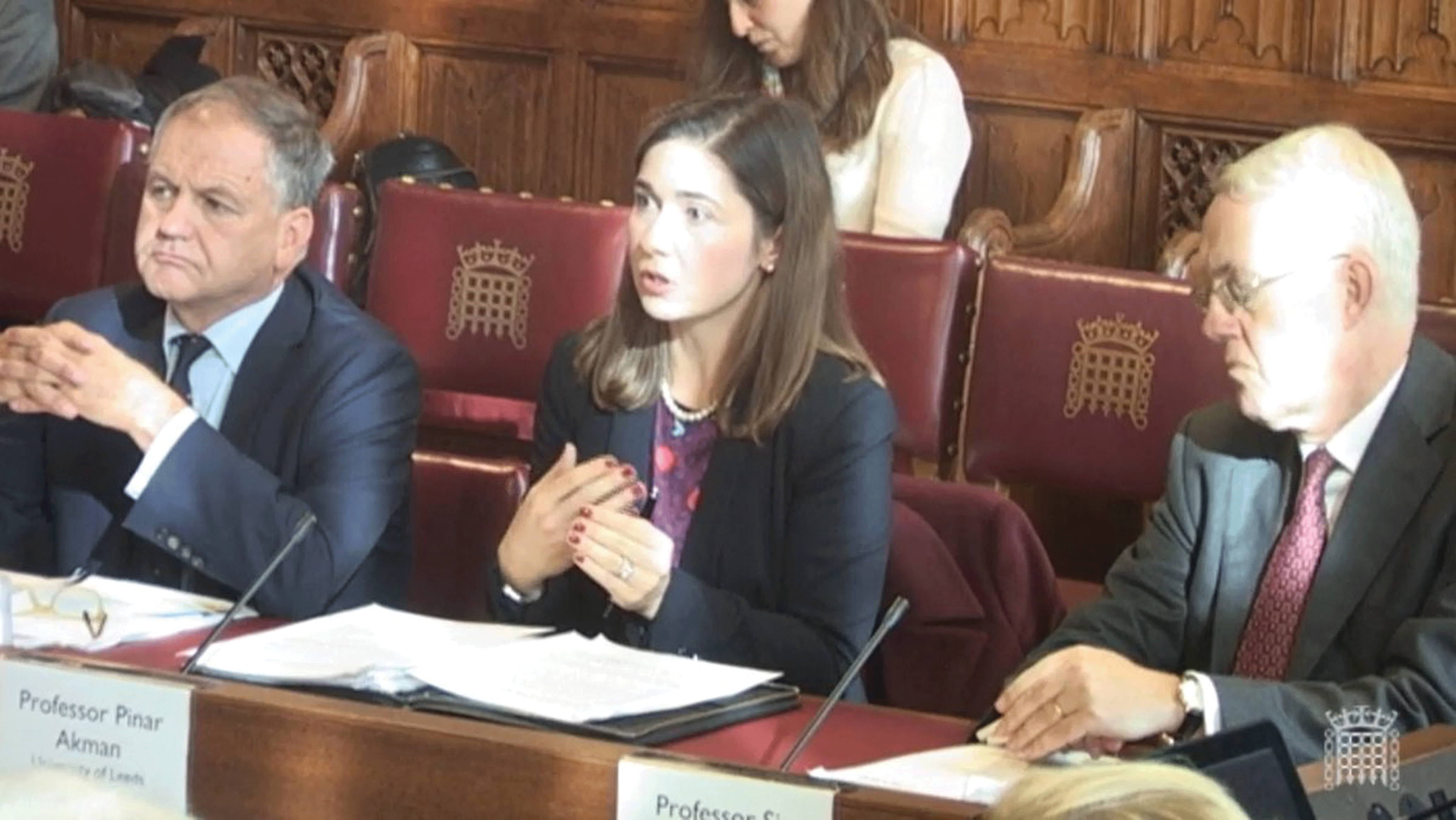
‘The government’s attitude has changed over time, but even previously many academics had always wanted their work to speak to people who aren’t just other academics,’ says Dr Steven Vaughan, senior lecturer in the Faculty of Laws at UCL.
The difference now is that there are more opportunities to do it. ‘It is my own sense that the involvement of legal academics in developing the law must be greater. There are more academics, there are more vehicles for us to be more involved,’ he says, from government consultations, sitting on parliamentary committees and giving evidence to them, to blogging and social media. ‘But I don’t think we have a way of directly measuring across the whole of academia and across a point in time the extent to which that has changed,’ Vaughan adds.
Vaughan, who practised for almost a decade in the City as a solicitor before switching to academia, has written for broadsheets, including The Times and the Guardian, and spoken at the Hay Festival of Literature and Art.
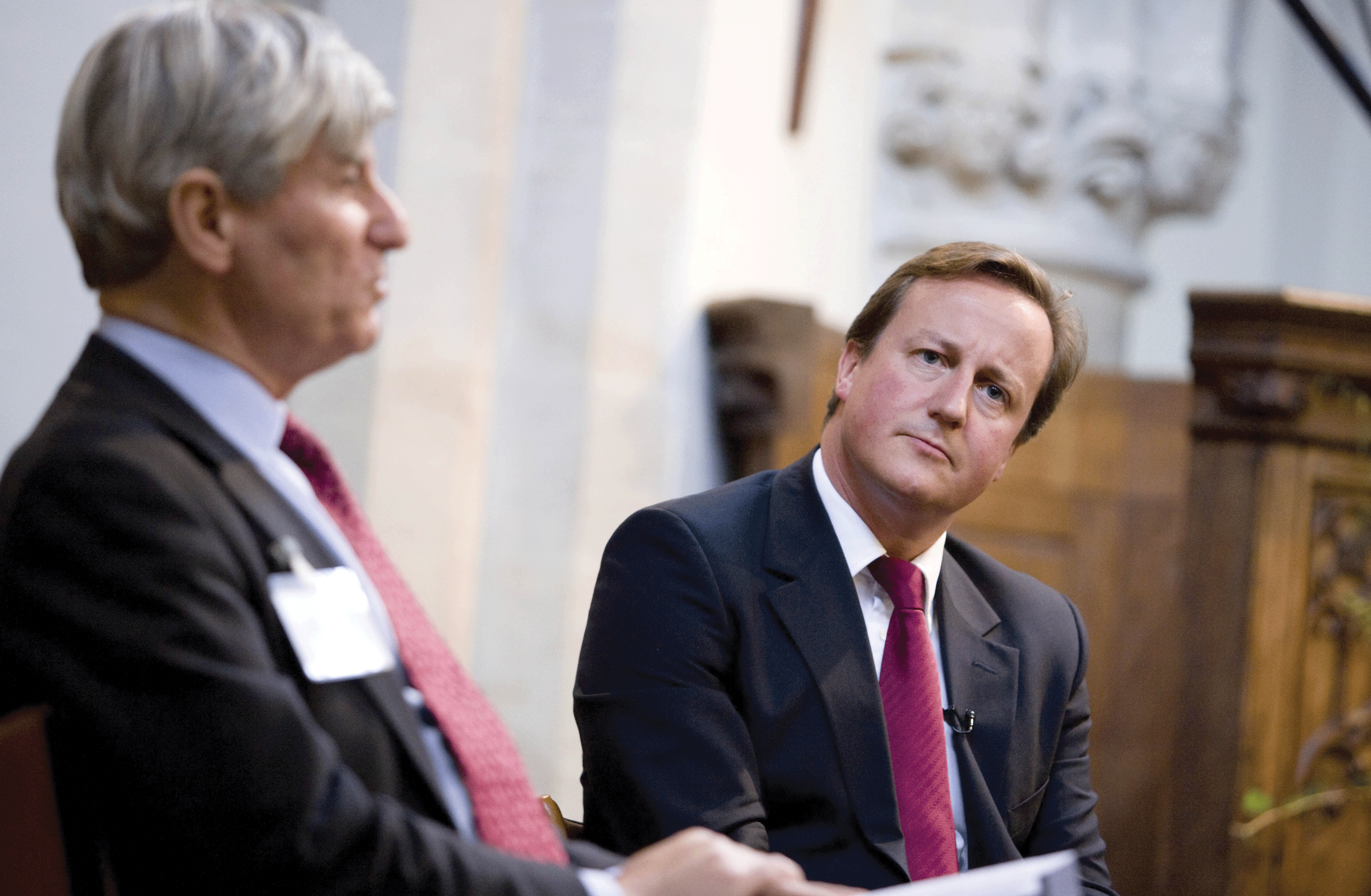
Professor of law Pinar Akman, a competition law specialist and director of the Centre for Business Law and Practice at the University of Leeds, recently took part in a live Intelligence Squared debate on ‘breaking up the tech giants’. This was broadcast on BBC World News to a global audience of 80m viewers. Akman, who has been awarded a £100,000 Philip Leverhulme Prize to research the application of competition law and digital markets, says: ‘That’s a way of disseminating my research in a way I couldn’t really do.’ That broadcast led to an invitation to speak at a workshop organised by HM Treasury and the Cabinet Office’s Open Innovation Team on the challenges of digital markets and Brexit for UK competition policy.
Akman was one of four academics to give oral evidence to the Internal Market Sub-Committee of the EU Committee at the House of Lords in October 2017, as part of the inquiry into Brexit and competition policy. The final report of the EU Committee, published in February, cites her evidence. ‘Giving oral evidence seems to be one way of getting easier access to policymakers because they are not just reading your work, they are actually listening to you, and they have to document the fact that they have,’ she says.
Some legal academic disciplines are more popular than others among civil servants and policymakers. ‘Competition law is very topical now because of Brexit,’ Akman says. That is because UK competition law has been ‘fundamentally influenced’ by EU legislation.
‘Brexit has regalvanised the extent to which academics are getting involved in policymaking,’ Vaughan observes. ‘The government didn’t want to hear from experts, yet Brexit is so complicated and so uncertain that it really reshapes the ability of academics to have an input.’ Many colleagues at UCL have responded to government consultations, sat in parliamentary committees, and advised NGOs and political parties, Vaughan notes.
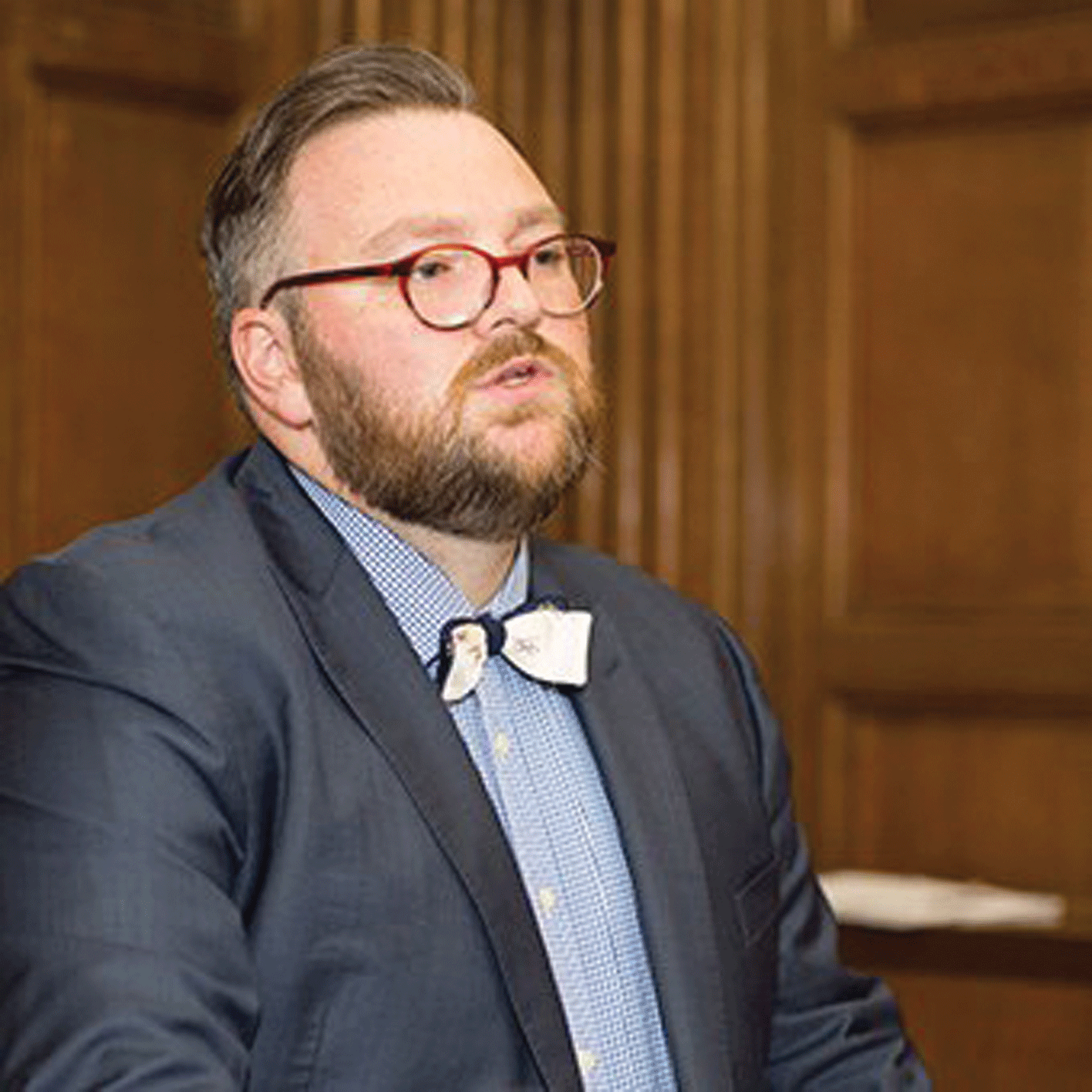
Vaughan’s own research on lawyers’ ethics and regulation – a rapidly evolving area as the sector liberalises – has influenced policymaking, he argues.
For example, in 2015 he co-wrote a report commissioned by the Solicitors Regulation Authority on lawyer-client relationships in large firms that led to the SRA introducing ‘independence’ as one of its key ‘priority risks’. Vaughan sits on both the SRA Policy Committee and the Legal Services Board Research Committee.
‘Some policymakers are looking for data or ideas on which to ground their policymaking and that brings with it the chance for academics to play a greater role,’ he says. It also helps to be in the right place at the right time: ‘Policymakers are very busy people and when they want evidence from [an expert] it’s so much easier if they already know you. With the SRA it was easy for me because I had been on their education and training committee [since January 2011] so I was already known to the senior management team.’
Vaughan also focuses on environmental law, where his research on nanotechnologies – a fast-growing area of science with wide application – led to an invitation by the British Standards Institution to co-author the world’s first guide for companies on regulation and standards in nano-materials and nanotechnology-based products.
Ahmed’s specialisation is, fortuitously for him, in English civil procedure and justice. ‘Over the last 15 years or so we have a had a number of huge reforms. The civil justice system is constantly evolving and so the work I am doing is in an area which is constantly moving forward,’ he says.
His published research on civil procedure led him to be co-opted to a specialist sub-committee of the Civil Procedure Rule Committee to help it implement the Jackson reforms to the general pre-action protocol.
ACADEMICS SHAPING LAW AND POLICY
- Lady Hale (pictured), president of the Supreme Court, spent nearly 20 years as a law professor at Manchester University. As chair of the Law Commission she shaped landmark legislation, including the Children Act 1989 and the Family Law Act 1996.
- Vernon Bogdanor CBE is professor of government at the Institute of Contemporary British History, King’s College, London and a former professor of government at Oxford University. He has advised many foreign governments on constitutions, including the Republic of Kosovo. Hung parliaments and the UK constitution is another an area of expertise.
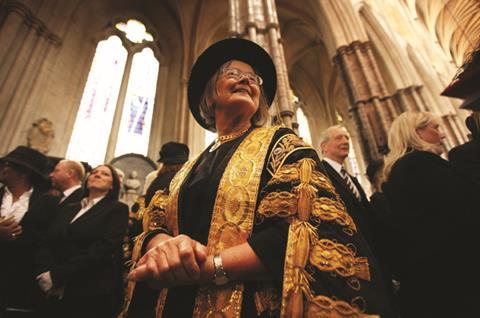
- Masood Ahmed is associate professor at the University of Leicester. Through his expertise in civil procedure, he was co-opted to a specialist sub-committee of the Civil Procedure Rule Committee to help it implement the Jackson reforms.
- Dr Steven Vaughan, a former City solicitor, is senior lecturer in the Faculty of Laws at UCL. His work on lawyer ethics and regulation has shaped SRA and LSB policy. He also focuses on environmental law.
- Professor Pinar Akman is a competition law specialist and director of the Centre for Business Law and Practice at the University of Leeds. Her participation in a BBC World News debate on ‘breaking up the tech giants’ was seen by 80m people, and led to her involvement in Treasury and Cabinet Office workshops.
- Jon Yorke is professor of human rights in the School of Law, and director of the Centre for Human Rights at Birmingham City University. His PhD was on the abolition of the death penalty in the Council of Europe. He joined the EU Working Group on the Death Penalty and is a member of the Foreign & Commonwealth Office Death Penalty Expert Group.
- Nick Barber is professor of constitutional law and theory at the University of Oxford. His analysis of the implications of the EU referendum result was the basis for Gina Miller’s legal challenge to the triggering of article 50.
- Professor Charles Oppenheim is a former professor of information science at Loughborough University and currently visiting professor at three UK universities. He was a member of the European Commission’s Legal Advisory Board from 1992 to 2013.
Ahmed’s research also looks at commercial arbitration and mediation, and the interrelationship between ADR and the Civil Procedure Rules. In 2016, with University of Alberta’s professor Barbara Billingsley, Ahmed published a comparative analysis of ‘compulsory ADR’ in England and Canada in the Common Law World Review. As a result of this work, he was invited to a workshop held by the Civil Justice Council in March as part of its review of the future role of ADR in civil justice.
Jon Yorke is professor of human rights in the School of Law, and director of the Centre for Human Rights at Birmingham City University. His PhD on the abolition of the death penalty in the Council of Europe, followed by ‘world-first’ scholarly articles on the same subject, brought Yorke to the attention of the European Commission, with an invitation to speak on the EU and the death penalty in the Royal Palace in Brussels. He subsequently took part in the EU Working Group on the Death Penalty, which drafted policies on the death penalty for the European External Action Service in 2010. This in turn led to membership of the Foreign & Commonwealth Office Death Penalty Expert Group, through which Yorke has been involved in various projects, including, most recently, advising the Myanmar government on their strategies for the abolition of the death penalty.
In addition to policy creation, he has worked in litigation, drafting legal opinions for the Meriam Ibrahim case in Sudan in 2014. Ms Ibrahim, a British national, was sentenced to death in Sudan for apostasy and subsequently freed. And he led the team which a year later filed the amicus curiae brief of the UK government in the case of Linda Carty in the Court of Criminal Appeals of Texas.
Yorke recognises that in his area of expertise it is ‘actually quite easy’ to get the ear of governments and policymakers, and to have an impact. ‘There has been a solidification, globally, of a political attitude against the death penalty, so when you advise them you can see a result,’ he says.
Vernon Bogdanor CBE is professor of government at the Institute of Contemporary British History, King’s College, and was for many years professor of government at Oxford University. As a distinguished constitutionalist, his expertise has been in demand both abroad and at home. He has advised on major constitutional reforms, including devolution in Scotland and Wales, and directly elected mayors for London and other cities. Overseas, professor Bogdanor has advised foreign governments, including those in the Czech Republic, Hungary and Kosovo. In his view, the involvement of academics in the development of law, through public policy initiatives, has increased: ‘There are more people interested in these matters than, say, 15 years ago. More lawyers, professors of law and other academics are interested in public law. And, of course, there are many new states with the fall of communism [and] waves of democratisation.’
As part of an OECD group of experts, Bogdanor was involved in the establishment of the Republic of Kosovo’s first constitution, introduced in 2008: ‘We saw that this was a divided society between Slavs and Muslims and therefore you can’t have the standard Westminster-type constitution. But there are perhaps lessons to be learned from Northern Ireland and the machinery adopted to deal with that.’
He has published several books and essays, including on hung parliaments and the constitution long before the advent of the coalition government in 2010. Bogdanor was among a group of academics to give written evidence for a report produced (in March 2011) by the House of Commons’ Political and Constitutional Reform Committee on the constitutional implications of the Cabinet Manual (which sets out how the government should operate in case of a hung parliament).
He has not advised the government on Brexit but recently gave a talk at 10 Downing Street on the lessons to be learned from the first national referendum, held in 1975, on whether the UK should remain in the European Community. ‘That event was attended by several civil servants and they may have been influenced,’ he says.
Internet of things
Nick Barber, professor of constitutional law and theory at the University of Oxford, argues that legal academics are ‘getting better’ at doing their job, which is to show ‘where the law is falling short’ and how it interacts with society.
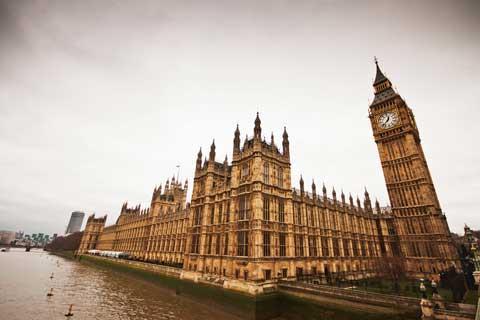
‘It could in part be that the government is encouraging us to do this through the funding formula,’ professor Barber says. ‘But to a greater extent the internet has made it possible. You have created a medium through which we can directly engage with the public.’
Most of professor Barber’s research tends to be ‘theoretical and abstract’, yet a blogpost he co-wrote (with Jeff King, professor of law, and Dr Tom Hickman, reader in public law at UCL Faculty of Laws) four days after the Brexit referendum had a significant impact on English constitutional law.
‘It was the genesis of the Miller decision,’ he says. This refers to the Supreme Court’s landmark judgment in R (Miller) v Secretary of State for Exiting the European Union in January 2017: ‘We argued that a statute was needed before Britain could trigger article 50, so it had to be done by an act of parliament, and not by royal prerogative.’
That theory was endorsed by Lord Pannick QC and ‘formed the core of the argument’ used by Gina Miller, the claimant, and upheld by the Supreme Court, professor Barber recounts. Hickman and Pannick, both at Blackstone Chambers, were subsequently instructed by Mishcon de Reya to represent Gina Miller.
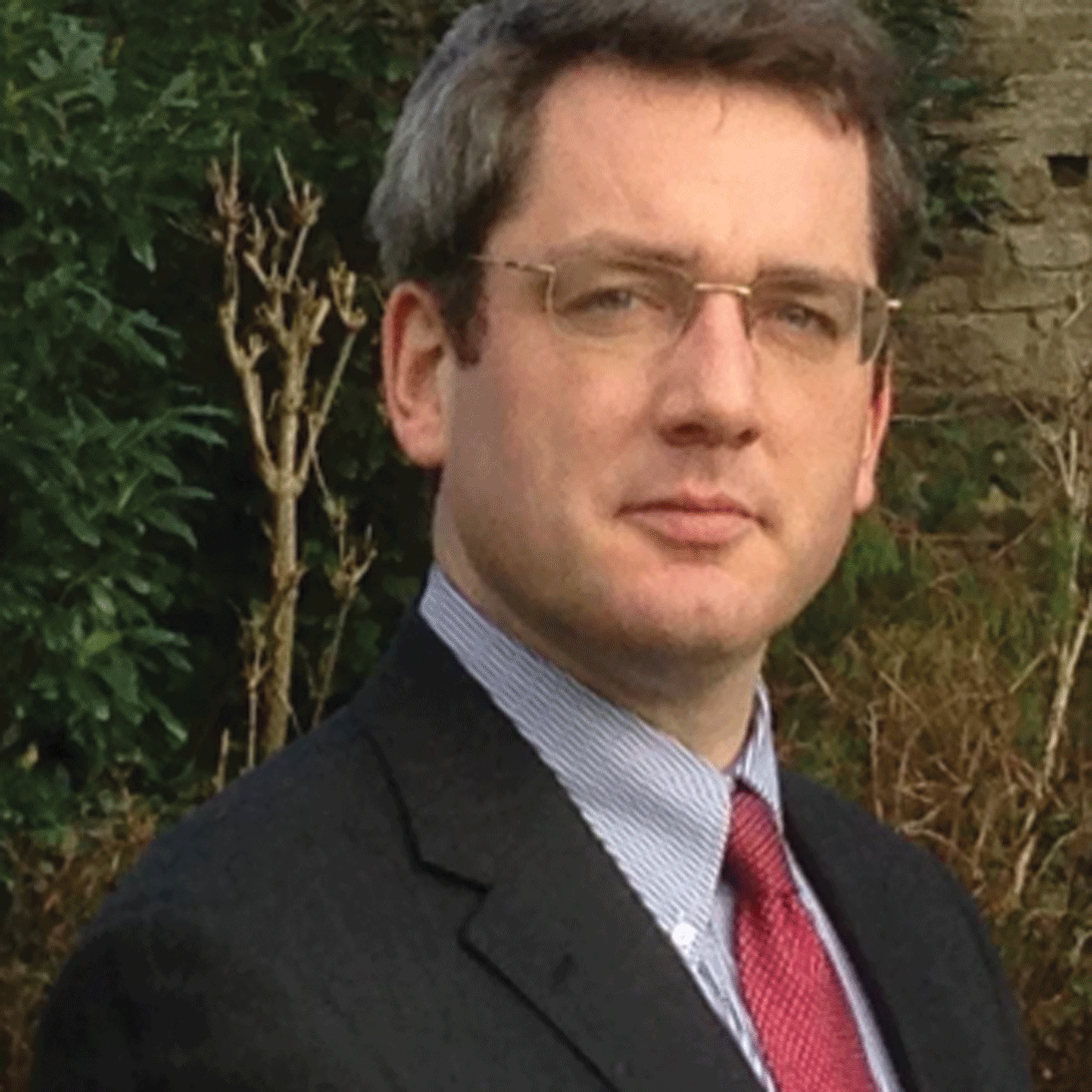
‘From that example you can see [web technology] influencing the law in two ways,’ Barber explains. ‘First, because we posted online we were able to respond to the Brexit decision very quickly, and in a way that allowed people outside the academic community to read and to engage with the arguments, so the internet was a powerful tool,’ he says. The blogpost, titled ‘Pulling the Article 50 “Trigger”: Parliament’s Indispensable Role’ was published on 27 June 2016 on the UK Constitutional Law Association website. It has been viewed 200,000 times.
‘Second, when we finally got to the actual Supreme Court case there were probably dozens of academic blogposts analysing different angles on that case, and I am sure that some of those arguments – it is hard to show a direct connection, of course – did influence the way the judges decided the case.’
Vaughan further highlights the merits of academic blogging: ‘It might take us three to four years to write and publish an academic paper because of the various processes it goes through, but if you have an idea, and you want to say something about an event you can do a blog much more quickly.’
‘Blogs [still] take time to produce if they are done well, but they can be a really effective way of getting your ideas out there,’ Vaughan explains. For example, ‘a blog of 700-1,000 words is normally written in a more conversational tone; it is easy to digest on someone’s phone on the way into the office’.
More academic journals are making their content freely available online through ‘open access’, making the dissemination of scholarly articles quicker and wider. Yorke points to an academic paper he co-authored in 2013 on the EU and the abolition of the death penalty as ‘the most downloaded article in the Pace International Law Review’, with over 2,000 downloads by governments, institutions and non-governmental organisations.
‘With open access of journals globally, policy-makers can have at their fingertips instant access to the quality of material which they are required to [use to] form intricate arguments. It definitely helps them and they do listen to legal academics in that way,’ Yorke adds.
If the web is unlocking academic research, there are downsides too. Legal academics may be tempted to react to events too quickly, instead of producing a ‘considered’ response, Barber argues, professing to be ‘not a fan’ of Twitter.
‘I think there are serious dangers when academics use Twitter. It is very tempting to be sucked into the overly quick response. The risk is that you present academic arguments in a way that will cause controversy,’ he says.
Do they really listen?
Civil servants, policymakers and judges may listen to what legal academics say, but do they actually follow their advice, and do they say they have when they do?
‘My personal experience is that judges in the higher courts are very ready to listen to academics, as are practitioners in large firms in particular,’ Cownie says.
But professor Charles Oppenheim is ‘quite cynical about how academics can influence policy’. Oppenheim, former professor of information science at Loughborough University and currently visiting professor at three UK universities, was a member of the European Commission’s Legal Advisory Board between 1992 and 2013, and has been an adviser to the UK government several times before and since. He has also helped draft commentaries and recommendations to government in the field of copyright and other intellectual property rights.
‘All were interesting experiences, but the amount of notice taken by government has been extremely variable. One often gets the impression that it welcomes research and expert commentary when the expert says things that are in accord with government thinking, but when they are not, then the government just ignores the advice,’ he asserts. ‘It is not always the case, but mostly so.’

Vaughan’s experience of advising policymakers has been positive, but he recognises that: ‘It depends on what we are saying. If we say something that they want to hear then it is very helpful for them to be able to cite our work in their policy decision or in their press release or wherever else it might be. If we are saying something that they don’t want to hear, then it is a more challenging relationship.’
Reacting to advice
How much and how quickly government reacts to legal academics’ advice depends on what is at stake. ‘In my field, I would say that the government does listen quite well,’ says Yorke, who is a member of the Foreign & Commonwealth Office’s Pro Bono Lawyer Panel, and leads the Centre for Human Rights work for stakeholders within the Universal Periodic Review in the Human Rights Council in Geneva. ‘The government does react quite swiftly to help our nationals abroad, and does listen to academics to help in individual jurisdictions.
‘Specifically, when Baroness Warsi was minister of state she absolutely listened to our advice on different cases,’ Yorke says, citing the Meriam Ibrahim litigation as an example. But he concedes that in other areas there can sometimes be ‘an opaqueness’ in the way government responds to academics’ advice.
The increased weighting of impact in funding for academic research – either directly from government or grants from research councils and other funders – means that ‘for legal academics it is obviously a little bit trickier’, Akman observes. ‘It means impact on policymakers and the judiciary is not always that easy to document, to be honest.’ She compares this with the work of a scientist discovering the cure for a disease, which she argues is easier to demonstrate.
‘They may be influenced by what you have told them, but they don’t necessarily cite your work.’ And, Akman observes: ‘If you are advising somebody not to change the law and they do not change [it] that is basically impossible for anyone to document.’ In the last research assessment exercise (REF2014) colleagues of Akman had to ask government departments for letters showing that their academic work was taken into account when creating policy.
Take the report of the House of Lords EU Committee, which cited her evidence and is now awaiting government response and debate in the House of Commons. Akman says in documenting impact, where possible, she would need to ‘trace a trail of citations and statements’ through the parliamentary stages of developing legislation.
Bogdanor explains that when academics are invited to advise on policy and law, ‘almost always, one is part of a group, and it is therefore difficult to pin down the specific influence one person has had. I believe that is also true in government. We tend to think too much of single individuals with power, whether it is the prime minister or someone else, but decisions in government are usually made collectively’.
The problem is that in the absence of express recognition, ‘you never really know if it is your contribution that has made a difference, or the judge or the policymaker would have done that anyway’, Barber observes.
In his 2012 lecture, Neuberger, then master of the rolls, said the distant relationship between judges and professors in England ‘was nowhere better exemplified than through the common law’s sceptical approach to the citation of academic works in the courts’.
The common law convention was not to cite works of academics who were still alive. That is no longer the case, with judges and scholars ‘influencing each other more openly and honestly than in the past, when the main way in which academic views could be sneaked into the courtroom was through advocates adopting those views,’ Neuberger said.
Yet, for some academics there is a lingering reticence by judges to cite their works. Akman says: ‘Not all courts are active in making an effort, let’s say, to put a citation to the academic work, even if they have read it and been influenced by it.’ Barber adds that the old convention still shapes the ‘ethos’ of judges.
‘Even modern judges come from that background, and so academic work is used slowly and with caution, and often the influence is under the surface.’
Nevertheless, legal academics are coming down from their ivory towers, and while recognition is hard to come by, their influence appears to be on the up.
Marialuisa Taddia is a freelance journalist































No comments yet